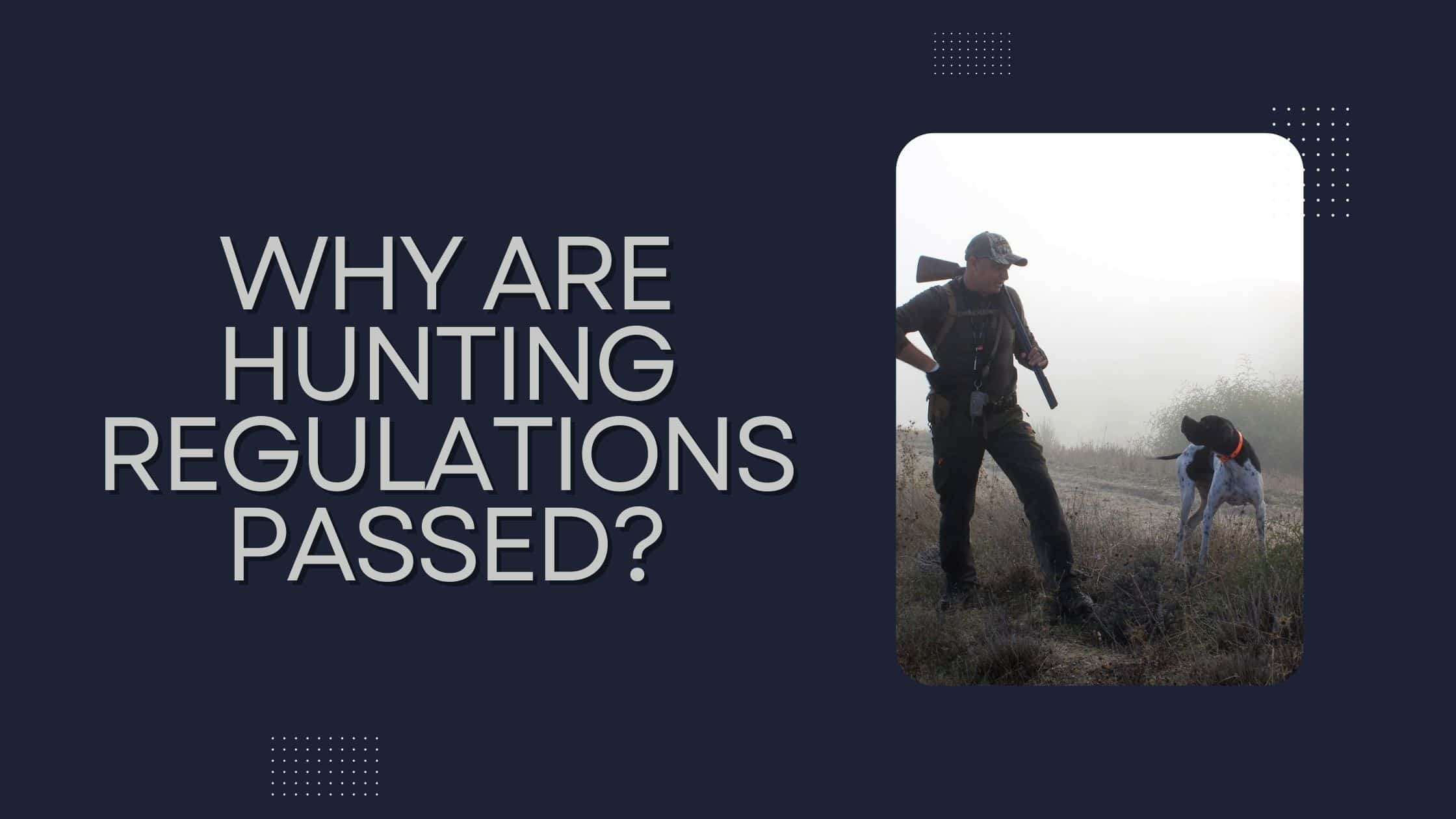Table of Contents
ToggleHunting is a popular pastime in America, whether for food or sport.
However, there are plenty of laws and state regulations to be aware of.
Do they need to be so strict when it comes to dealing with everything from weapon types to hunting seasons? Are these regulations more for our benefit or for that of the wildlife?
Why do hunting regulations exist in the United States?
Hunting regulations exist in the United States to ensure that wildlife is managed sustainably and humanely. These regulations are also designed to promote safety, ensuring that hunters are not at risk of injury to themselves or others.

Get Smarter on US News, History, and the Constitution
Join the thousands of fellow patriots who rely on our 5-minute newsletter to stay informed on the key events and trends that shaped our nation's past and continue to shape its present.
Additionally, hunting regulations help preserve habitats and provide a healthy environment for wildlife to thrive.
Are There Federal and State Hunting Laws?
In the United States, certain rules apply to everyone. But some rules can vary from state to state. For example, the federal government might say it’s not allowed to hunt certain animals, such as those that are endangered or birds that travel long distances.

State regulations are more common as there are differences in factors like age limits on obtaining a hunting license, hunting seasons, and the use of bait.
A good example of the difference at a state level comes in gaining a hunting license. The majority of states have a minimum age limit of around 12 years old, although others allow for any age as long as there is adult supervision and the hunt is not for a dangerous animal.
Some states also require passing a hunter education course before getting a hunting permit.
Hunting Regulations That Help Manage Wildlife Populations
One of the most important reasons that we have hunting regulations in America is to stop the exploitation of wildlife resources.

Hunting for food or trophy hunting are both controversial, but each sport is limited to prevent overhunting or damage to a wildlife preserve. These limitations should also allow for fairer competition between hunters.
What Is a Tipping Point When Referring to Hunting?
A tipping point comes when a species is overhunted or faces another threat that puts it at risk of extinction. As soon as a wildlife population becomes unsustainable, it shouldn’t be available for hunting.

The reason for this comes down to basic ecology. There is a delicate balance in nature where species depend on each other to sustain a bio-diverse environment.
When you remove parts of that chain, such as removing a herd of vital grazers and a food supply for local carnivores, you are left with an unbalanced ecosystem.
Why Do We Have Hunting Seasons?
Hunting seasons can help responsible hunters maintain the balance between overhunting and not having a 12-month season of relentless shooting.

These often happen in the fall, especially for deer hunting, as this is the time of the rut. Spring seasons of hunting are rare as this is the time when animals raise the next generation, which subsequently maintains the population.
Some people are understandably against there being any hunting season at all. However, in some areas, hunting can ensure that herd numbers don’t get out of control. Deer can be a problem when they overrun and overgraze areas.
Where Can Hunters Hunt?
Hunting regulations can also determine where people can hunt. This is important because it means that hunters are limited to a managed population with a clear hunting season. It also means they can’t go and do as they please on any wild piece of land.

Hunting is permitted on land managed by the United States Fish and Wildlife Service. This includes 400 wildlife refuges, 35 wetland sites, and 20 national hatcheries.
This means there are many options for hunting big game, shooting birds, and fishing without taking over the entire United States.
Managing the Use of Hunting Weapons
Each state will have its own hunting regulations regarding the weapons you can use. Many relate to the type of gun used to ensure hunters don’t take anything too dangerous. Furthermore, it is the law that all firearms must be in their cases and unloaded in public areas.

It is also important that hunters review local laws regarding the use of bows and other forms of weaponry for hunting. This also includes using aids such as blinds, stands, and tree stands. The latter is prohibited in many areas.
Often, the rules on weapons and ammunition depend on the game hunted, too. This is why all new hunters need to check the rules in their local state and any variations when hunting out of state.
Protecting People and Property
Finally, hunting regulations help protect the rights of other people. Again, this all comes down to ensuring that hunters can’t simply do as they please without consideration for others.
The United States Forest Service states that
“discharging a firearm (including a bow and arrow) is prohibited in or within 150 yards of…any place where people are likely to be.”
There is also the protection of private property. Hunters cannot stray onto private land owned by another party unless given permission to come and shoot on an estate.
Penalties for Breaking Hunting Laws
Penalties for breaking hunting laws can vary depending on the severity of the crime. Often, you will find people being fined and losing their privileges. In serious cases, there could be a prison sentence.

Maintaining A Balance With Hunting
Whatever your motive for hunting, or your personal views on the sport, it is clear that hunting regulations are essential for the protection of the natural world.
State-level variations are also important to maintain a delicate balance among different habitats and species across the nation.











